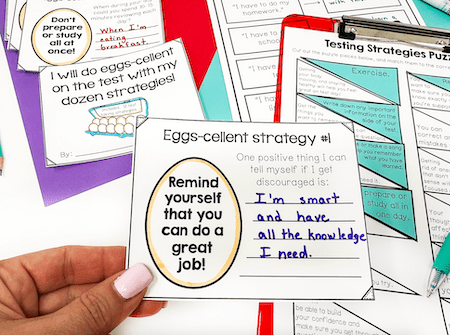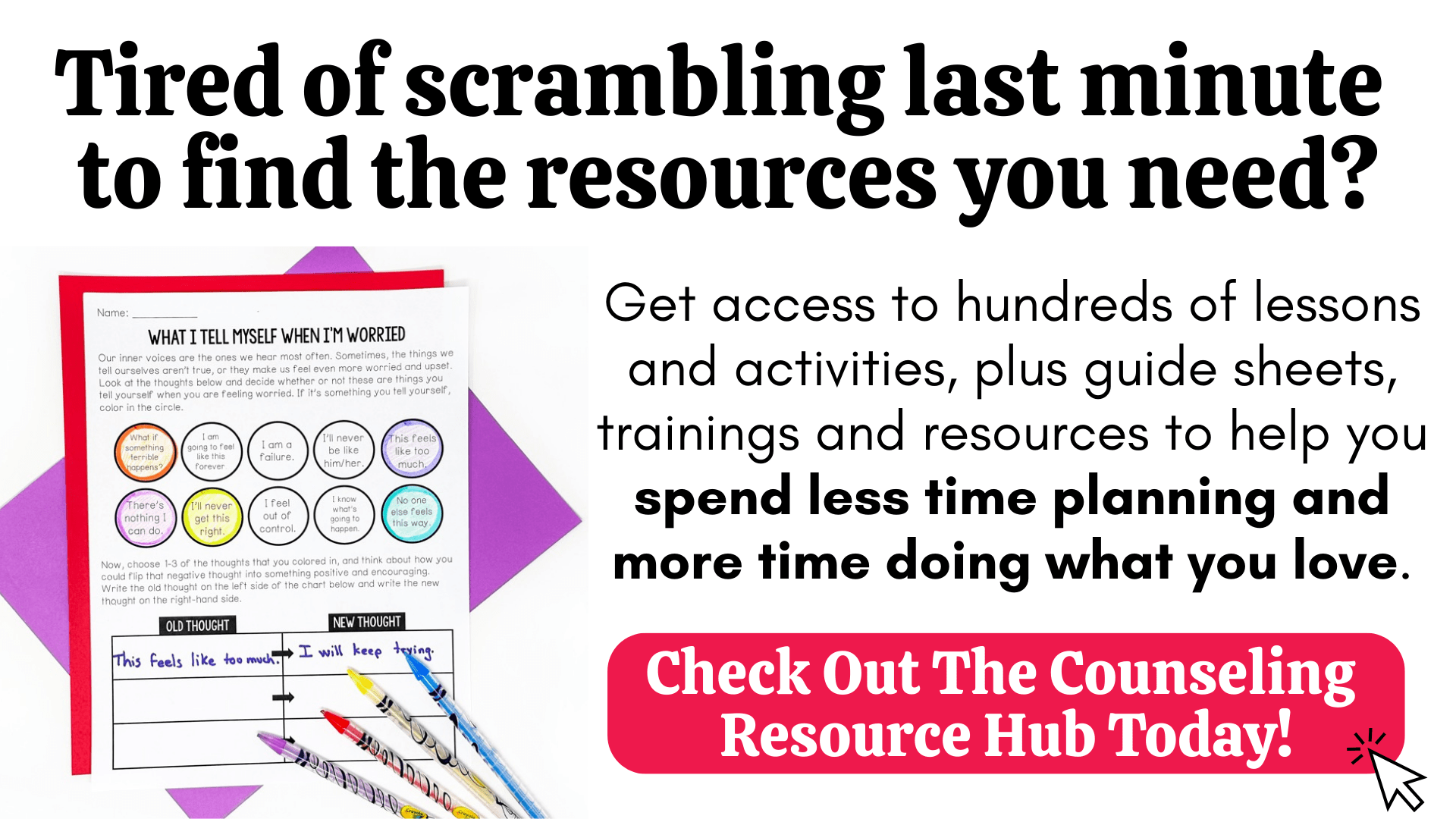4 Things You Can Teach Kids To Help Them Overcome Test Anxiety
Knees weak. Arms are heavy. There may even be vomit on their sweaters. No, I’m not talking about the rapper Eminem - I’m talking about the millions of students who struggle with test anxiety. All joking aside, test anxiety is a serious, and difficult issue that many children face.
Testing is hard enough, but coupled with test anxiety, it can be a miserable experience. These 4 tips for helping students with test anxiety will make it easier for you give kids the strategies they need to conquer both the test and the anxiety that comes with it.
This post contains affiliate links. Please review my full disclosure policy for additional information.
Tip 1: Talk About What To Expect During The Test
The unknown breeds anxiety. When we know exactly what we can expect, there is less fear about the unknown. Test taking is no different. This is especially true for standardized tests, when students may be off their normal school routine. The more information you can give to students ahead of time, the more prepared they will feel. Some examples of things that might be helpful for students to know are:
What time will the test be?
Where will the test take place?
How much time will they have to finish the test?
Which topics/concepts will be covered?
What materials will they have access to?
Depending on the test, it may be helpful to talk to students about what will/won’t happen, based on their performance. For example, if the test won’t have any effect on the students’ grades, this information might help them feel more calm about the test. This strategy will help relieve any anxiety about what will actually happen during the test. You can also ask the student to share any questions that they have about what will be occurring.
Tip 2: Boost Confidence With Test Taking Strategies
While some kids may feel anxious because they don’t know what to expect during the test, other students may struggle with performance anxiety. These students may fear the negative consequences of not doing well on the test. One way to help students overcome this is by teaching test taking strategies. These can help students feel more confident in their ability to perform well and overcome any challenges that may pop up. Some test taking strategies that my students have found helpful are:
Double checking your answers
Reading through the directions twice
Eliminating answers that you know aren’t correct
Skipping the questions you don’t know and coming back to them
Looking for an easy way to teach test taking strategies? Check out these activities that pair perfectly with the book The Anti-Test Anxiety Society by Julia Cook.
Tip 3: Teach Positive Self-Talk Strategies For Test Anxiety
Negative self-talk is ever-present for many students who struggle with test anxiety. They are plagued with thoughts that they aren’t smart enough, won’t know what to do, or will fail the test. Taking tests is already hard enough, but having these thoughts rattling around in your brain can make it even more difficult. A test anxiety strategy that can be so helpful for kids is to be able to identify these negative thoughts and flip them into positive ones.
One of my favorite ways to teach positive self-talk is to ask students to come up with negative things they tell themselves either before or during tests. Students can brainstorm these individually, or as a group. Then, work together to come up with positive replacements for these negative thoughts. This helps students learn to identify and replace negative self-talk in real life situations.
Here are some examples that might be helpful to your students:
Negative self-talk: “This test doesn’t matter.”
Positive self-talk: “This test is a chance for me to show what I know.”
Negative self-talk: “I don’t understand this, so I’m giving up.”
Positive self-talk: “I can do hard things. I will try my best and get it done.”
Negative self-talk: “I’m just not as smart as the other people in my class.”
Positive self-talk: “Everyone has different things they are good at. I can work hard and get better at this.”
Looking for more positive self-talk activities? This blog post is for you!
Tip 4: Identify Coping Skills Students Can Use During The Test
Not all coping skills can be used in all situations. Some of your students’ go-to strategies may not be possible during testing. For example, they may not be able to talk to an adult, get a drink of water, or go to the calm down corner. This is why an important of helping students with test anxiety is teaching them coping skills that they will be able to use during the test. This will not only help them manage any anxieties that pop up, but will also help them feel prepared to tackle the situation if it should arise.
Some coping skills that work well during testing are:
4-7-8 Breathing: Breath in for 4 seconds, hold your breath for 7 seconds, exhale for 8 seconds
Hand squeezes: Clench your fists for 10 seconds, then relax. Do this 3 times.
Visualization: Think about how you will feel after the test. Picture the best case scenario.
Stretching: Stretch your legs out in front of you as far as you can. Stretch your neck by moving your head up and down or doing neck rolls.
After the test, it’s always helpful to debrief with students and touch base about which strategies they used and how it went. Then, from there you can continue to build their toolbox. For example, if a student found success with some of the physical coping skills (stretching, squeezing, etc.) you can help them learn and practice more of these!
Testing can be hard, but thankfully these test taking strategies can help students feel less nervous, and more calm and ready when test time comes. When students know what to expect on the test, and can use test taking tips, positive self-talk and other coping skills, they will be ready to rock the test with confidence!









